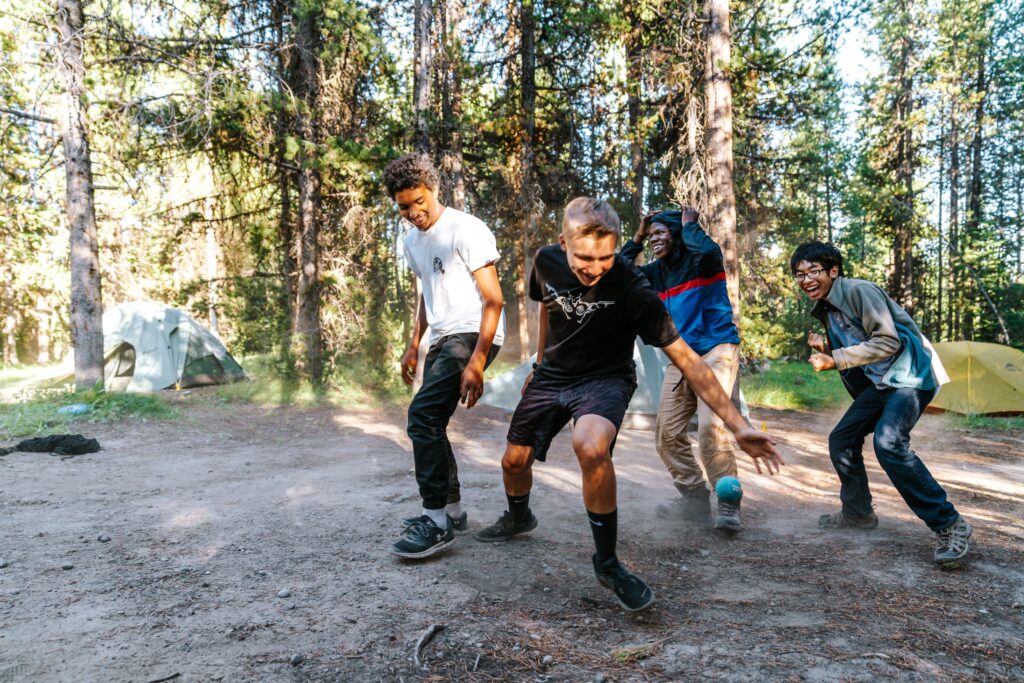
If you’ve ever been a part of a school trip to Teton Science Schools you know that one of the first things we do when you arrive on campus is collect your phone (and all other electronics) for safe-keeping. Why? Well, for starters, many of the places we visit on a given trip are void of a reliable connection but more importantly, it’s because we, and many of our students and adult learners, continue to find value in unplugging. The connections we build with ourselves, others and the places we encounter when we’re disconnected are almost impossible when we have a phone in our pockets.
Now, that’s not to say that phones don’t have a place in our everyday explorations — we’ve found great value in the endless apps available for navigation, stargazing, field guides, citizen science, and of course, photography. But let’s face it, when we leave the door open for a few apps, we leave the door open to all of them, each offering their own seductive lure towards distraction.
We’re not saying to turn your phone off all the time, but take a look at a few of the reasons we opt to leave phones behind on our programs and maybe you’ll consider going phone-free this weekend.
It’s good to get bored

For most of us, experiencing boredom occurs on a daily basis — we feel it while waiting in line to pay for our morning coffees, we feel it when our bus is delayed or we’re sitting in traffic and we feel it when we “have to endure the same conversation, lecture, or TV show over and over again” (source). Often, its situational and as a result we feel pulled to change the setting — lately, with our phones. Just give a few seconds at a changing crosswalk and we can be pulled into an ever-supplied web of viral videos, news media, live updates from friends and family and targeted shopping experiences. But at what cost? One writer admits that, “we’re only just beginning to wrap our minds around the costs” (source) and other researchers have concluded that simply, “the mere presence of these devices reduces available cognitive capacity” (source).
What’s clear is that when our phones are not present, our attention is more free and our minds more open to wander about. When we let our minds wander, we allow ourselves to explore connections in the world that we might otherwise not see. A certain smell encountered on the water can immediately transport us to a distant memory. An extraterrestrial looking rock on the playground might have us daydreaming of what life on another planet would be like. The mere repetitive motion of a day on the trail can free up our minds to plan for the future, let ideas take root and gain perspective on our lives (source).
Problem-solving gets more creative with limited resources

If there’s anything our smartphones have allowed us to do really well these last few years, its finding answers to our questions quickly! Want to know what day Earth Day falls on in 2020? Ask Siri. Want to know how high the tallest peak in Wyoming is? Google can tell you. Does an inchworm really measure out at an inch? Hey, Alexa. The fact is, finding the answers to our endless supply of questions and curiosities is easier than ever. When you’re unplugged, however, these are just the type of questions that spark the most fun conservations and sometimes, the most heated debates.
When we limit our access to information we give ourselves the opportunity to flex mental muscles associated with creativity, resilience and critical thinking.
We connect better with each other and our environment

It’s not an uncommon trend these days to feel more comfort conversing and engaging with people online than the very people that we live and work amongst. In fact, it’s a place that most of us rely on for communication and maintaining a sense of community. When you take it away, that sense of connection and community can often feel lost. It can be the hardest part of truly unplugging.
But it can also be an opportunity.
When you’re outside the comforts of your normal support network or communication structures, the people nearest you become the people you turn to for advice, encouragement, an extra cup of sugar or a even a laugh. Connections — relationships and senses of place — form quickly when there are no distractions. When we make them, we’re able to nurture values like trust, reliability, gratitude, service and respect and create a cohesiveness that supports not just our own wellbeing, but our immediate circles, too.
It’s not uncommon for participants on a trip to come together as strangers at the beginning of the program and leave a week later as friends for life.
Want to unplug on a TSS trip?


